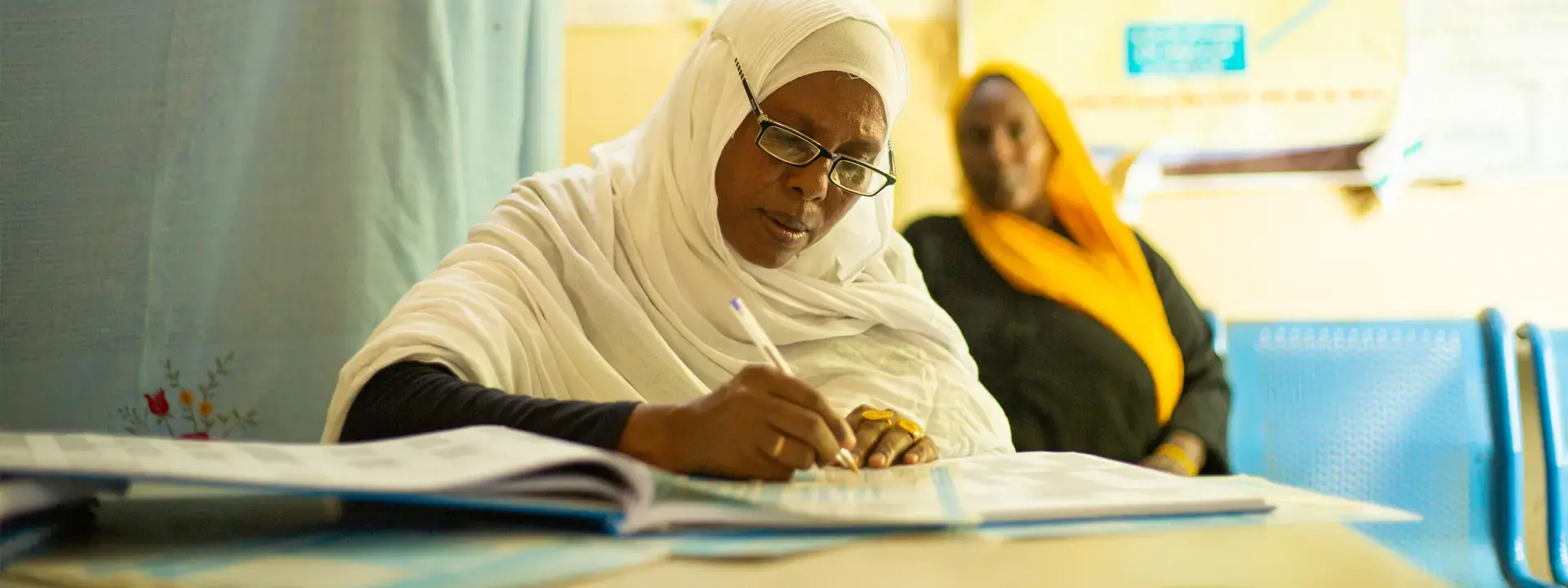A population and housing census is among the most complex and massive peacetime exercises a nation can undertake. It requires careful planning, resourcing and implementation – from mapping an entire country, mobilizing and training large numbers of enumerators, and conducting major public awareness campaigns, to canvassing all households, carefully monitoring census activities, and analyzing, disseminating and using the resulting data.
A census involves the complete enumeration of the population in a country, territory or area, and should be conducted at least once every 10 years. It generates a wealth of data, including numbers of people, their spatial distribution, age and sex structure, as well as their living conditions and other key socioeconomic characteristics. These data are critical for good governance, policy formulation, development planning, crisis prevention, mitigation and response, social welfare programmes and business market analyses. UNFPA provides technical and financial support to ensure that censuses are of high quality, uphold international principles and standards, and produce data that are widely disseminated and utilized for development.
2020 Census Round
The 2020 census round, which runs from 2015 to 2024, takes place against a changing global landscape. As countries around the world pursue a range of new global commitments, including the 2030 Agenda for Sustainable Development, there is growing demand for disaggregated data at all levels. Censuses are also evolving to adopt new technologies, including Geographic Information Systems (GIS) and handheld devices, and use of data from administrative registers (such as birth, marriage and death registers, address registers, employment registers etc.) for census purposes. These shifts are accompanied by increasing demands to modernize national statistical systems and strengthen capacities.
Additionally, the COVID-19 pandemic caused extensive disruptions and delays to census projects as countries were forced to implement measures to reduce the spread of the virus.
About half of the countries in the UNFPA Arab Region had conducted the 2020 Census Round as of 2023, with a further four - Tunisia, Djibouti, Morocco and Iraq - conducting the census in 2024. The 2020 census round has not been possible in a set of four countries with complex crises and outdated census data – Lebanon (last census 1932), Syria (2004), Yemen (2004) and Sudan (2008), while both Somalia and Libya have postponed their censuses.
How is the information used?
Today, with major demographic shifts occurring and increased attention on international development, accurate and timely data are more important than ever. The unique advantage of the census is that it represents the entire statistical universe, down to the smallest geographical or administrative area, of a country or region. This information is required for evidence-based decision-making in a variety of settings, including the design and monitoring of policies.
Often, a national census is the only source of information for identifying forms of social, demographic or economic exclusion – such as inequalities by geographic location, race, ethnicity, religion or other characteristics. The census also provides data on disadvantaged regions and vulnerable groups, such as the poor, older persons, people living with disabilities, migrants, and adolescent and young girls. Up to 107 of the 231 unique indicators of the Sustainable Development Goals require population data for monitoring, and censuses are a key data source. Censuses also provide the basis for deriving samples of households for national surveys and the production of granular baseline population data, disaggregated by age and sex that support operations and decision-making in the initial response to a humanitarian emergency.
What are the challenges?
With censuses typically conducted every decade, many national statistics offices face capacity challenges, as it may be hard to retain expertise between census rounds. Furthermore, the emergence of new technologies and methodologies often requires new skills, tools, and the development of relevant expertise and capacity.
Census taking, by virtue of its scale, is a costly exercise that needs careful budgeting, planning and timely resource mobilization. Censuses are often postponed due to lack of funding or a delayed release of funds. Creating partnerships with major stakeholders, including development partners, civil society and the private sector, is crucial to ensure completion.
Conflict and instability in many Arab countries pose additional challenges that make census enumeration impossible. In crises or fragile settings, recent and reliable demographic data is often missing or incomplete. Also, large population displacements may quickly render existing information out of date. In these contexts, UNFPA can provide support to generate modeled population estimates to fill data gaps.
UNFPA in action
Strengthening the capabilities of countries to collect, process, analyze, disseminate and use census data for development is a key area of UNFPA’s work.
UNFPA’s key areas of support are outlined in the corporate Guidance Note: UNFPA Technical and Operational Support to the 2020 Census Round and include:
Providing technical support.
UNFPA provides Census Technical Advisers, GIS and data processing experts, operations support, and technical assistance. Technical assistance covers all phases of the census and is tailored to national needs. Common areas of support include the development of census project documents, census quality assurance, communication, publicity and advocacy, and the implementation of new census methodologies and approaches.
Generating and sharing knowledge. This includes:
- Developing census technical and operational guidance tools. These include technical briefs on topics such as measuring disability, migration and marriage registration in censuses, hybrid census methodology, value of modelled population estimates for census planning and preparation, migration analysis, and post-enumeration surveys, as well as step-by-step census guides, Gantt chart templates, and key operational and financial management guidelines for census projects. Together with the US Census Bureau, UNFPA has released technical notes on fertility measurement, measuring migration, census data archiving and preservation, and counting the hard-to-count populations. Technical guidance on the implications of COVID-19 for census was developed in response to the pandemic.
- Brokering South-South cooperation for census support. UNFPA organizes South-South study tours and technical exchanges, in which national statistical offices can learn from each other. UNFPA also supports tablet sharing between countries as a cost reduction mechanism, and to reduce risks associated with procurement processes.
Promoting dissemination and open access to census data. UNFPA has launched the Population Data Portal – an interactive, web-based data platform that integrates quantitative and geospatial data, including census data, with in-built dynamic analytic functions.
Leveraging institutional partnerships. UNFPA has established strategic global, regional and national partnerships to enable more effective and efficient census support. These include partnerships with the UN Statistics Division, the US Census Bureau, the World Bank, Statistics Korea, the GRID3 initiative, the United Nations regional organizations, (such as the United Nations Economic and Social Commission for Western Asia (ESCWA) and United Nations Economic Commission for Africa (UNECA), national partners, the University of Southampton, IPUMS USA (Integrated Public Use Microdata Series) and the Statistical Centre for the Cooperation Council for the Arab Countries of the Gulf (GCCSTAT).
Mobilizing resources for censuses. UNFPA supports resource mobilization at the country, regional and global levels. In March 2020, UNFPA launched the Population Data Thematic Fund to support census modernization, capacity strengthening, and improved access to census data as a public good.
Updated 3 September 2024




